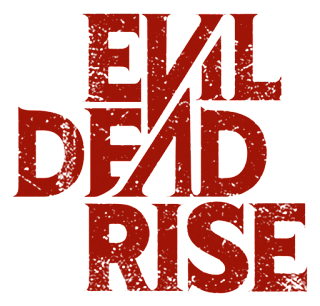There’s a fascinating subgenre of film all based around “how the thing you love was made.” It’s different from your typical biopic, where the focus is someone’s life, or a “based on a true story” film where the subject is a particular stretch of time. Rather, movies like “Air,” “Tetris,” “The Social Network” tend to contain elements of both previously mentioned genres, with an added layer of capitalistic excitement: “I can’t wait to pay to see how the thing I paid for was made and how the people who made it got rich off people like me who bought it.”
In a sense “BlackBerry” is a weird kind of film, because while on the surface it seems exactly like another one of those movies, underneath there’s a cheeky sense to it all. It’s not a full-blown comedy or satire like “Walk Hard,” but it isn’t not being just a tad bit silly and a tad bit self-aware.
Directed by Matt Johnson (“The Dirties,” “Operation: Avalanche”) and written by Johnson and Matthew Miller (“The Dirties,” “Nirvanna The Band The Show”), “BlackBerry” is about the creation of the titular phone and the sharp decline in both its popularity and its company, Research in Motion. It stars Jay Baruchel (“How to Train Your Dragon,” “This is the End”) as Mike Lazaridis, the co-CEO and co-founder of RIM and the creator of the original phone, Johnson as Douglas Fregin, Mike’s best friend and co-founder of RIM, and Glenn Howerton (“It’s Always Sunny in Philadelphia,” “A.P. Bio”) as Jim Balsillie, the businessman whom they pitch the phone to who eventually joins RIM as co-CEO in an attempt to become rich and famous off of the phone.
The film rides a very thin line between seriousness and silliness between its entire runtime and somehow doesn’t manage to tumble into either entirely. While based on a true story, Johnson and Miller have clearly embellished plenty of elements to play them up to their logical extremes. Balsillie was a bit disagreeable in the workplace? Then crank him up to 11 degrees of asshole-ish-ness and have him be played by one of the best assholes in the business. The film is so wildly entertaining because of its committed cast that its hard to see anyone complaining about the historical inaccuracies because its all just so much fun.
Johnson himself has mentioned that the film’s opening “based on real events” disclaimed came from a request from lawyers more than a creative desires, but it works to explain the film overall. This is a very Canadian, very sly satire of this genre, while still managing to be a flat-out entertaining movie even if you don’t piece that together. Howerton is absolutely stealing the entire show here, channeling his insane levels of self-centeredness from “Sunny” without seeming too overblown for the reality of the film. Baruchel balances the same kind of thing with his nerdy inventor persona, and Johnson as Douglas manages to be a beacon of normalcy in this storm of big egos and big drama.
Even with the undercurrent of sly wit here, Johnson and Miller still find time to actually recount the events they advertise. We see the explosion of popularity for the BlackBerry, the rise and fall of RIM, how the iPhone affected them, and so on. It’s not only an accurate tale of the industry, but its shot wonderfully. While the handheld camera technique could have gotten annoying after a while, the way Johnson keeps everything either stationary at afar but tight and wobbly on character closeups helps to balance the tension and big personalities. The score by Jay McCarrol (“The Kid Detective,” “Operation Avalanche”) also manages to be just evocative enough of other electronic dramatic scores to work, but is used smartly and calmly throughout so as to not overwhelm.
While nothing that will upend the genre due to its satire or its dramatic content, “BlackBerry” proves that when you have a good cast and a good script, you can still make a great film even as the genre its in seems destined for self-parody. Johnson’s film is smart, its fun, its well-acted, and it manages to be just a really good time, plain and simple. 4/5


.jpg)






.png)




.jpg)




